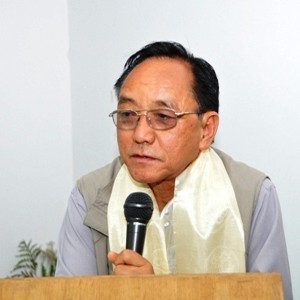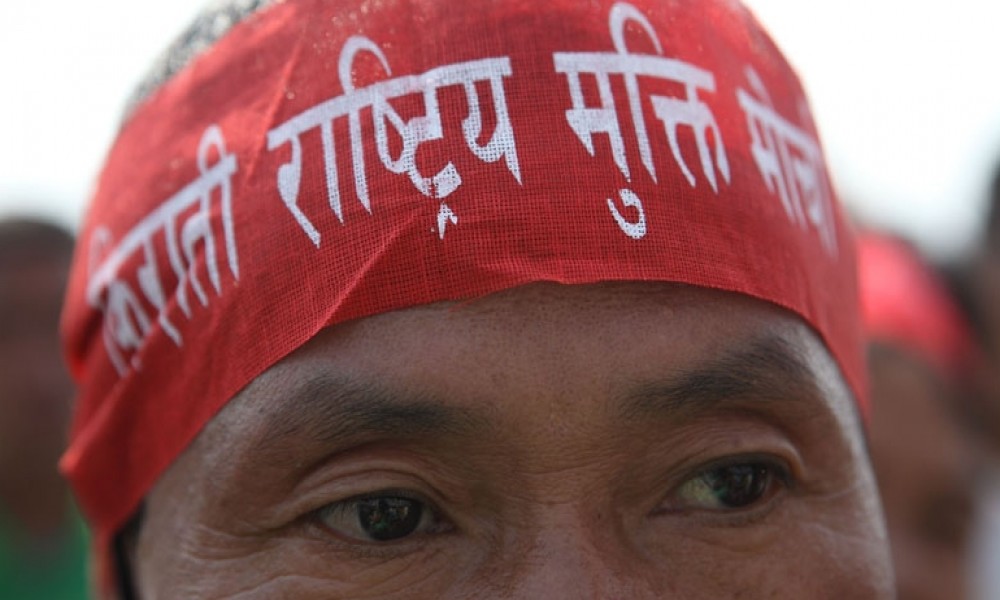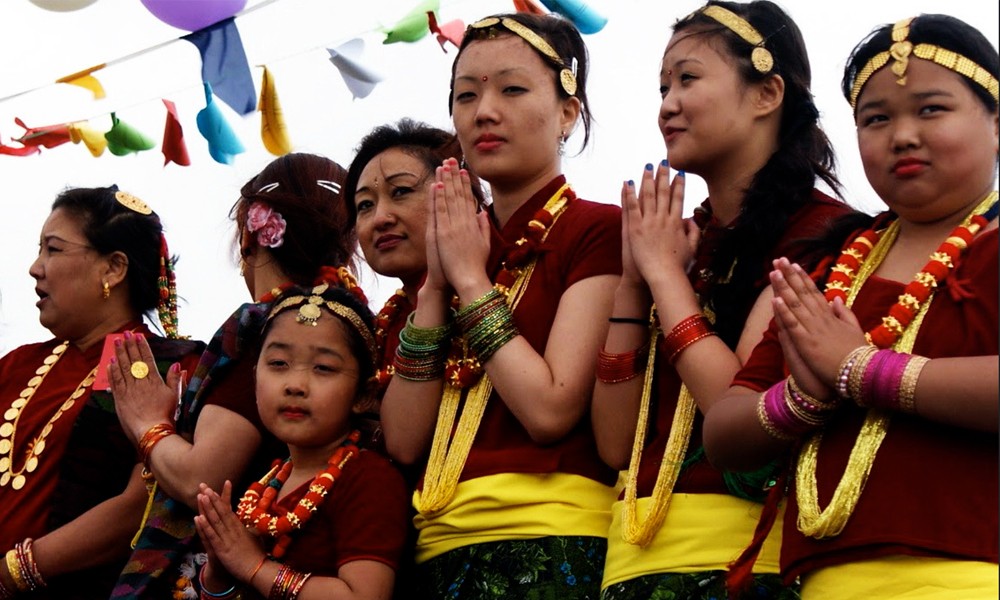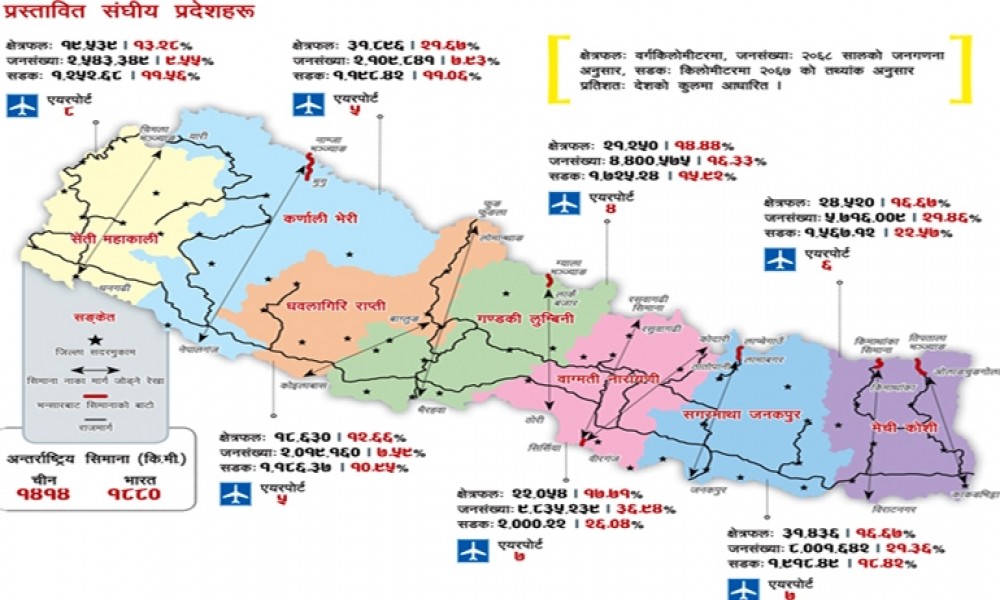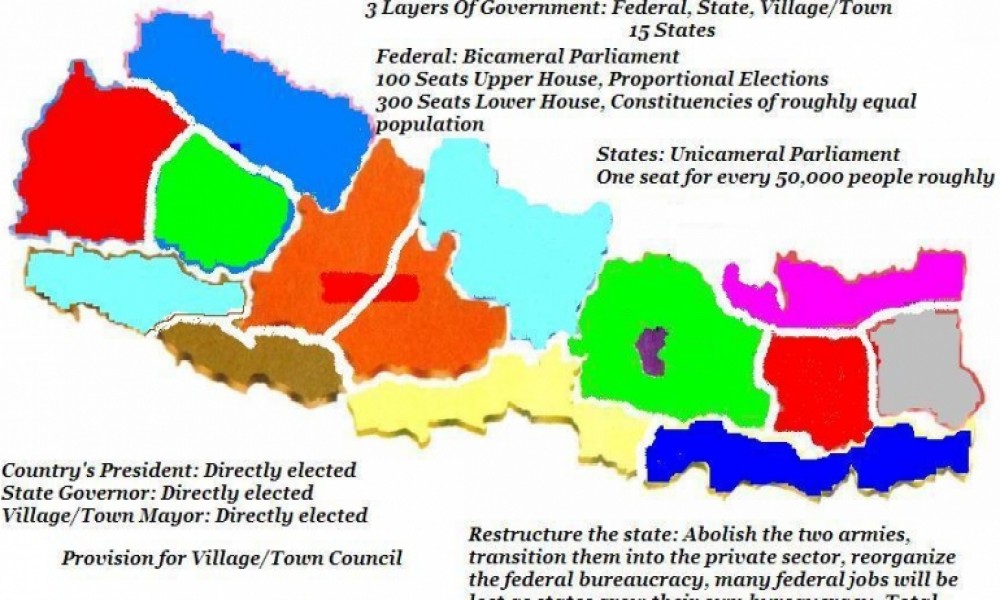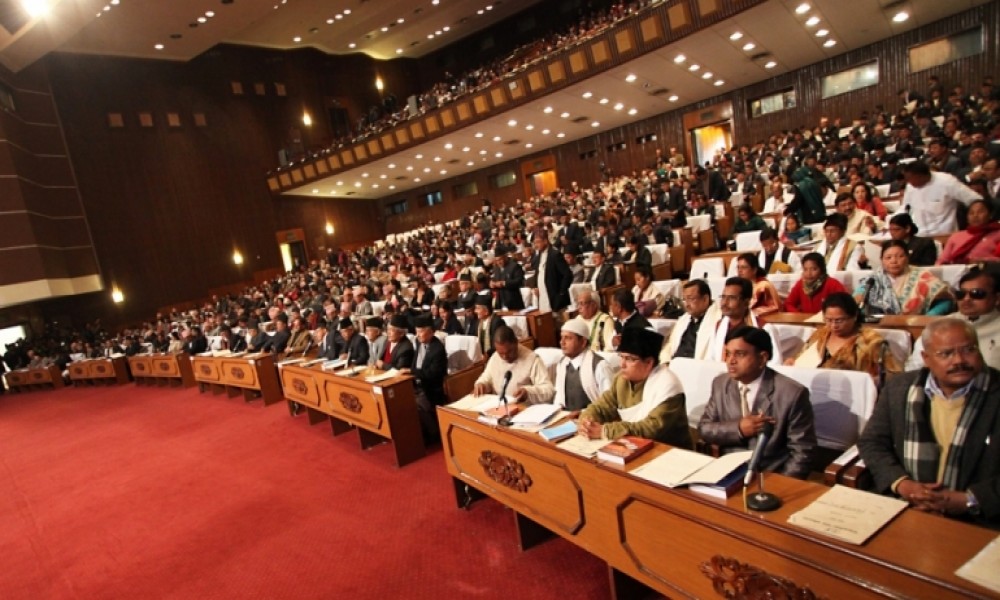Indigenous Peoples are victims of decades of political exclusion. The so-called high-caste people – Bahuns and Chhetris – have captured the state, grabbed all resources and designed development plans as per their own conveniences. As a result, only they grow prosperous and more powerful. So, the conclusion can be drawn that only those who holds the state power can grow.
After restoration of democracy, other people also started asserting their rights. They refused to remain oppressed and marginalized. This is the context from where the concept of federalism emerged. Federalism envisions mainly two things:
First, the state can no longer be dominated by one caste/community and all resources of the state must be distributed proportionally. But, mentality of the rulers is that they should be giving rights to other people. They are dead against sharing their rights with other people. This is why they are also opposed to federalism. The ideal of federalism is to make democracy more functional. It also enhances inclusion. It enables marginalized people's access to resources. In short, it opens doors of opportunity to all the oppressed and marginalized people. This is not possible within the existing political structure.
Second, it deals with war over identity. For ages, identity has always become the reason of conflict between communities. Federalism helps end identity-related conflict.
The so-called high-caste people – Bahuns and Chhetris – have captured the state, grabbed all resources and designed development plans as per their own conveniences. As a result, only they grow prosperous and more powerful. So, the conclusion can be drawn that only those who holds the state power can grow.
Why name matters
Indigenous Peoples want new federal units to be named after their communities. But, the rulers are against this idea.
There are a few reasons behind why the ruling class does not want to acknowledge identity of the oppressed people. First, they perhaps fear that if federal provinces are named after the oppressed people, the issue of injustice done to them will resurface. It is nothing but a wrong concept. They never want the oppressed communities to be on par with them. They never wan the oppressed communities to be as capable as them. Second, the ruling class fears that the issue of identity will embolden the oppressed communities and create difficulties in the way they are enjoying the state resources.
In federalism, access of local people, communities and leaders will grow to resources. Increased access to resources will translate to more power of the marginalized people.
Access to resources
In federalism, access of local people, communities and leaders will grow to resources. Increased access to resources will translate to more power of the marginalized people. It will level uneven relationship between the rulers and the ruled. Federalism will also help regional political forces to grow. This means that the center will not have as much power as it is enjoying now. If regional political forces join their hands, it will create difficulties and political challenges to the center. It is yet another reason why the rulers are not in favor of federalism.
If federalism cannot be averted, then the rulers just want administrative divisions of the country. It will look like federalism but in no way serves the real purpose of creating federal provinces. In geographically divided federal provinces, the rulers will still be in a majority and they will not allow the marginalized people to exercise their rights. Administrative division of the country in the name of federalism is yet another ploy by the rulers to suppress the oppressed community's dream for freedom.


